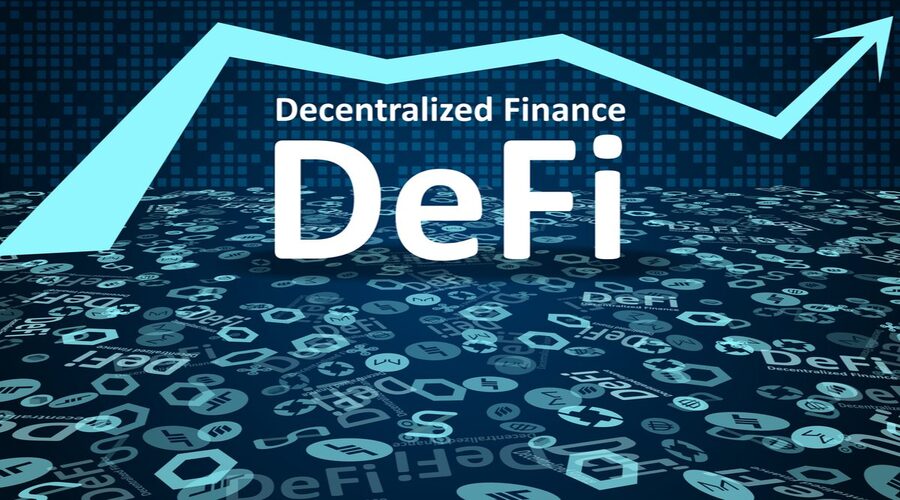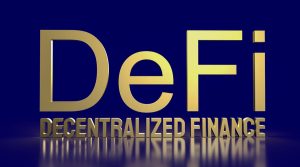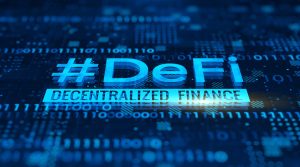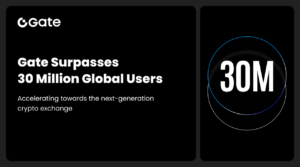Insurance and Risk Mitigation Strategies for DeFi Investors

Insurance and Risk Mitigation Strategies for DeFi Investors
Introduction
As decentralized finance (DeFi) continues to gain popularity in the world of blockchain and cryptocurrency, investors are drawn to the potential high returns offered by this innovative financial ecosystem. However, with great rewards also come great risks. It is crucial for DeFi investors to understand the risks associated with their investments and implement appropriate risk mitigation strategies. One such strategy is utilizing insurance to protect against potential losses. In this article, we will explore insurance and risk mitigation strategies for DeFi investors.
Understanding Decentralized Finance (DeFi)
DeFi refers to a system of financial applications and platforms built on blockchain technology. It aims to provide traditional financial services, such as lending, borrowing, and trading, in a decentralized manner without intermediaries like banks. DeFi protocols are typically open-source and allow users to interact with them directly using their cryptocurrency wallets. This eliminates the need for trust in centralized institutions and enables greater financial inclusivity.
Risks Associated with DeFi Investments
While DeFi offers numerous opportunities, it also comes with inherent risks. Some of the common risks associated with DeFi investments include:
- Smart Contract Vulnerabilities: Smart contracts are the building blocks of DeFi protocols, and any vulnerabilities or bugs in these contracts can be exploited by malicious actors, leading to financial losses.
- Impermanent Loss: Impermanent loss occurs when liquidity providers suffer losses due to volatility in the value of the assets they provide to the DeFi protocol.
- Market Volatility: DeFi investments are exposed to market volatility, which can lead to significant price fluctuations and potential losses.
- Protocol Risks: DeFi protocols can face risks such as governance failures, regulatory uncertainties, and potential exploits.
Importance of Insurance in DeFi
Insurance plays a vital role in mitigating risks for DeFi investors. It provides a safety net against unforeseen events and offers financial protection. Insurance coverage for DeFi investments helps to restore investor confidence and encourages wider participation in the DeFi ecosystem. By transferring some of the risks to insurance providers, investors can focus on maximizing their returns without the constant fear of catastrophic losses.
Types of Insurance for DeFi Investors

- Smart Contract Insurance: Smart contract insurance covers losses resulting from vulnerabilities or bugs in smart contracts. It provides compensation to investors in case of hacks or exploits.
- Asset Insurance: Asset insurance protects the value of the assets held by DeFi investors. It covers losses resulting from theft, loss of private keys, or other security breaches.
- Protocol Insurance: Protocol insurance protects against risks specific to DeFi protocols. It covers losses resulting from governance failures, protocol exploits, or regulatory changes.
- Market Volatility Insurance: Market volatility insurance helps investors mitigate losses caused by sudden and significant price fluctuations. It provides coverage against adverse market conditions.
Risk Mitigation Strategies for DeFi Investors
To minimize risks and safeguard their investments in DeFi, investors should consider the following strategies:
- Conduct Thorough Research: Before investing in any DeFi project, perform comprehensive due diligence. Assess the project’s team, technology, security measures, and community support.
- Diversify Your Portfolio: Spread your investments across multiple DeFi projects and asset types. Diversification reduces the impact of any single project’s failure on your overall portfolio.
- Utilize Insurance Products: Explore and leverage insurance products designed for DeFi investors. These products offer financial protection and peace of mind.
- Stay Informed and Updated: Keep yourself informed about the latest developments, security best practices, and potential risks in the DeFi space. Stay updated with the evolving regulatory landscape to ensure compliance.
Governance Insurance
Governance insurance is a type of coverage that protects against risks associated with the governance of DeFi protocols. DeFi projects often have decentralized governance models where token holders have voting rights to make decisions. However, governance decisions can sometimes lead to disputes, conflicts of interest, or poor decision-making. Governance insurance helps mitigate these risks by providing coverage for losses resulting from governance-related issues.
Custodial Insurance
Custodial insurance is designed to safeguard investors’ assets held in custody by third-party service providers in the DeFi ecosystem. Many DeFi platforms rely on custodians to hold users’ funds securely. However, custodial risks exist, such as theft, insider malfeasance, or operational failures. Custodial insurance offers protection against such risks, ensuring that investors’ assets are adequately covered in the event of a custodial failure.
Regular Security Audits
Regular security audits are essential for risk mitigation in DeFi investments. Security audits involve independent assessments of smart contracts, protocols, and underlying infrastructure to identify vulnerabilities and weaknesses. By conducting thorough security audits, DeFi projects can proactively address potential risks and enhance the security of their platforms. Investors should prioritize projects that undergo frequent and reputable security audits to minimize the chances of exploits and hacks.
Staking and Yield Farming Risks
Staking and yield farming have become popular strategies in DeFi for earning passive income. However, they come with inherent risks. Staking involves locking up assets, and yield farming involves providing liquidity to earn rewards. Risks include smart contract vulnerabilities, protocol failures, impermanent loss, and potential exit scams. Investors should assess the risks associated with staking and yield farming activities, diversify their strategies, and consider insurance coverage specifically designed for these activities.
Community and Social Sentiment Analysis
Monitoring the community and social sentiment around a DeFi project is an important risk mitigation practice. Negative sentiment, such as widespread concerns, rumors, or controversies, can indicate potential risks. Analyzing community discussions, social media trends, and sentiment analysis tools can provide insights into the overall perception and sentiment surrounding a project. Investors should consider these factors when evaluating the risk profile of a DeFi investment.
Privacy and Security Measures
Privacy and security are paramount in the DeFi space, considering the sensitive financial transactions involved. DeFi investors should prioritize platforms that have robust privacy and security measures in place. This includes encryption protocols, secure key management systems, and privacy-enhancing technologies like zero-knowledge proofs. Understanding the privacy and security features of DeFi projects can help investors make informed decisions and mitigate risks associated with data breaches or unauthorized access.
Insurance Providers and Platforms
The emergence of DeFi has given rise to specialized insurance providers and platforms catering specifically to the needs of DeFi investors. These platforms offer a range of insurance products and services tailored to the unique risks faced by DeFi participants. When exploring insurance options, investors should consider reputable insurance providers and platforms with a track record of reliability and transparency. It is essential to review the terms and conditions, coverage limits, and claim processes offered by different insurance providers to choose the most suitable option.
Exit Strategies and Liquidity Management
Having effective exit strategies and managing liquidity are essential risk mitigation practices in DeFi investments. Exit strategies involve planning for potential scenarios where investments need to be liquidated, such as market downturns or unforeseen circumstances. Investors should evaluate the liquidity of their DeFi assets, understand the protocols’ lock-up periods, and consider diversifying their investments across different projects to maintain liquidity. Proper liquidity management ensures that investors have the flexibility to exit positions and minimize potential losses.
Community Due Diligence
The DeFi community plays a vital role in evaluating the credibility and reliability of projects. Engaging in community due diligence involves actively participating in community forums, discussions, and social media channels related to DeFi projects. By monitoring and contributing to the community, investors can gain valuable insights, identify potential red flags, and make informed investment decisions. The collective knowledge and experiences shared by the community can act as an additional layer of risk assessment and mitigation.
Continuous Learning and Education
The DeFi space is dynamic and rapidly evolving. To effectively mitigate risks, investors must commit to continuous learning and education. Staying updated with the latest developments, trends, and best practices in DeFi is crucial. This includes understanding new protocols, emerging technologies, regulatory changes, and security advancements. By investing time and effort into education, investors can adapt to the changing landscape, identify potential risks early on, and make well-informed investment decisions.
Regulatory Compliance
Regulatory compliance is an important consideration for DeFi investors. As the DeFi ecosystem evolves, regulatory frameworks may be established to govern its operations. Investors should be aware of the legal and regulatory requirements in their jurisdictions and ensure that the projects they invest in adhere to these regulations. Compliance with Know Your Customer (KYC) and Anti-Money Laundering (AML) procedures, as well as any licensing or registration requirements, can contribute to risk mitigation by reducing the chances of legal and regulatory complications.
Reputation and Track Record
The reputation and track record of DeFi projects and teams play a significant role in risk assessment and mitigation. Investors should research and evaluate the reputation of the projects they consider investing in. Factors to consider include the team’s experience and expertise, previous successful projects, community trust, and transparency of project documentation. Projects with a solid reputation and a proven track record of delivering on their promises are generally considered lower risk.
Early Warning Signals
Monitoring early warning signals is a proactive risk mitigation strategy. By staying vigilant and observing indicators of potential risks, investors can take timely action to protect their investments. Early warning signals may include sudden changes in project leadership, lack of transparency in project updates, community discontent, or unusual market behaviors. Investors should be mindful of these signals and conduct further investigation or consider reducing exposure to projects showing concerning signs.
Stress Testing and Simulations
Stress testing and simulations are effective risk management techniques for DeFi investments. These involve subjecting DeFi protocols and investment strategies to simulated scenarios to assess their resilience and performance under adverse conditions. Stress testing can help identify potential vulnerabilities, evaluate risk management mechanisms, and make informed decisions based on the outcomes of the simulations. Investors should consider participating in projects that undergo regular stress testing and simulations to ensure their investments can withstand challenging market conditions.
Insurance Premium Evaluation
When considering insurance for DeFi investments, it is crucial to evaluate insurance premiums and their cost-effectiveness. Investors should assess the premiums charged by insurance providers in relation to the coverage offered. Factors such as coverage limits, deductibles, claim procedures, and the financial stability of the insurance provider should be considered. Evaluating insurance premiums allows investors to find the right balance between the level of coverage desired and the associated costs, ensuring the insurance products chosen align with their risk tolerance and investment strategies.
Conclusion
DeFi investments offer exciting opportunities, but they also carry risks. By understanding these risks and implementing appropriate risk mitigation strategies, DeFi investors can protect their assets and navigate this rapidly evolving landscape with greater confidence. Insurance products tailored for DeFi provide an additional layer of security and peace of mind, enabling investors to participate more actively in the DeFi ecosystem.








